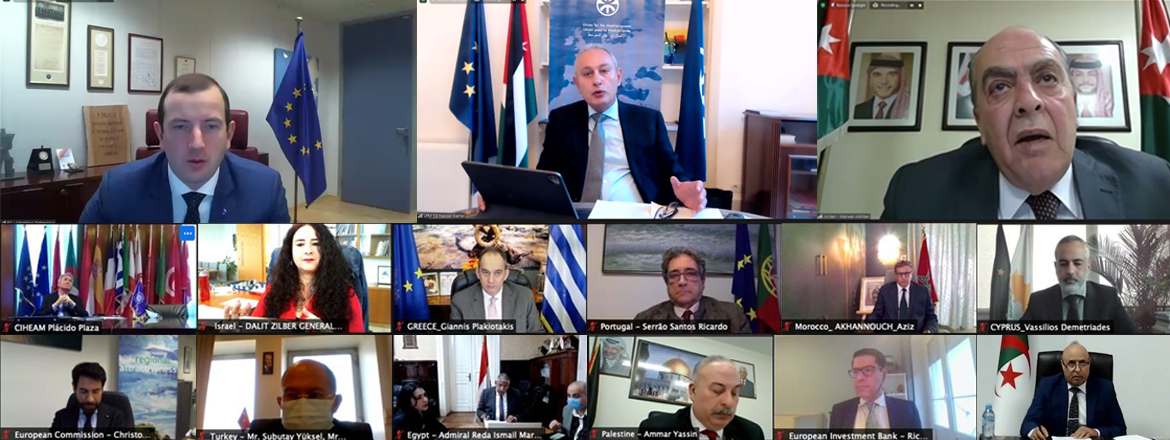

Ministers from the 42 Union for the Mediterranean countries have agreed to intensify their efforts towards a sustainable blue economy in the Mediterranean. Doing so, they want to ensure the sustainable development of the region around its main shared good – the Mediterranean Sea; promote the recovery of the region’s economies from the COVID-19 crisis; and address the environmental and climate challenges the region is facing.
The key areas of cooperation agreed by the 42 UfM countries are: governance and the future of sea basin strategies in the Mediterranean region; marine research and innovation, skills, careers and employment; sustainable food from the sea: fisheries and aquaculture; sustainable, climate-neutral and zero-pollution maritime transport and ports; marine litter; coastal and maritime tourism; Maritime Spatial Planning and Integrated Coastal Zone Management; marine renewable energies; maritime safety and security; sustainable investment.
- Permanent representation North-South through the UfM CoPresidency (EU and Jordan);
- Permament platform for dialogue - UfM Working group on Blue Economy (countries and stakeholders; countries are represented based on national priorities with respect to the BE dossier, thus contributing to a cross-sectorial exchange at regional level)
- Solid tools for stakeholders' involvement, including the Med Blue Economy Platform; regular Stakeholders Conference/s; representation of categories of stakeholders at the UfM WG on BE
The importance of having a consolidated action-driven methodology, with a common ambition of creating effective links between the policy dimension and its operational translation into concrete projects and initiatives on the ground to adequately address the challenges of the region and its key interrelated priorities.
The UfM builds its identity around a political dimension, of Ministerial and governmental representatives’ meetings that define the priorities of the work through the adoption of a common regional agenda. The Ministers of Foreign Affairs meet once a year at the UfM Regional Forum to define strategic areas and priorities. Declarations adopted by consensus by the 42 Ministers define the scope and objectives of this common agenda. Sectorial ministerial meetings usefully complement the political dialogue by addressing key strategic priorities in the region.